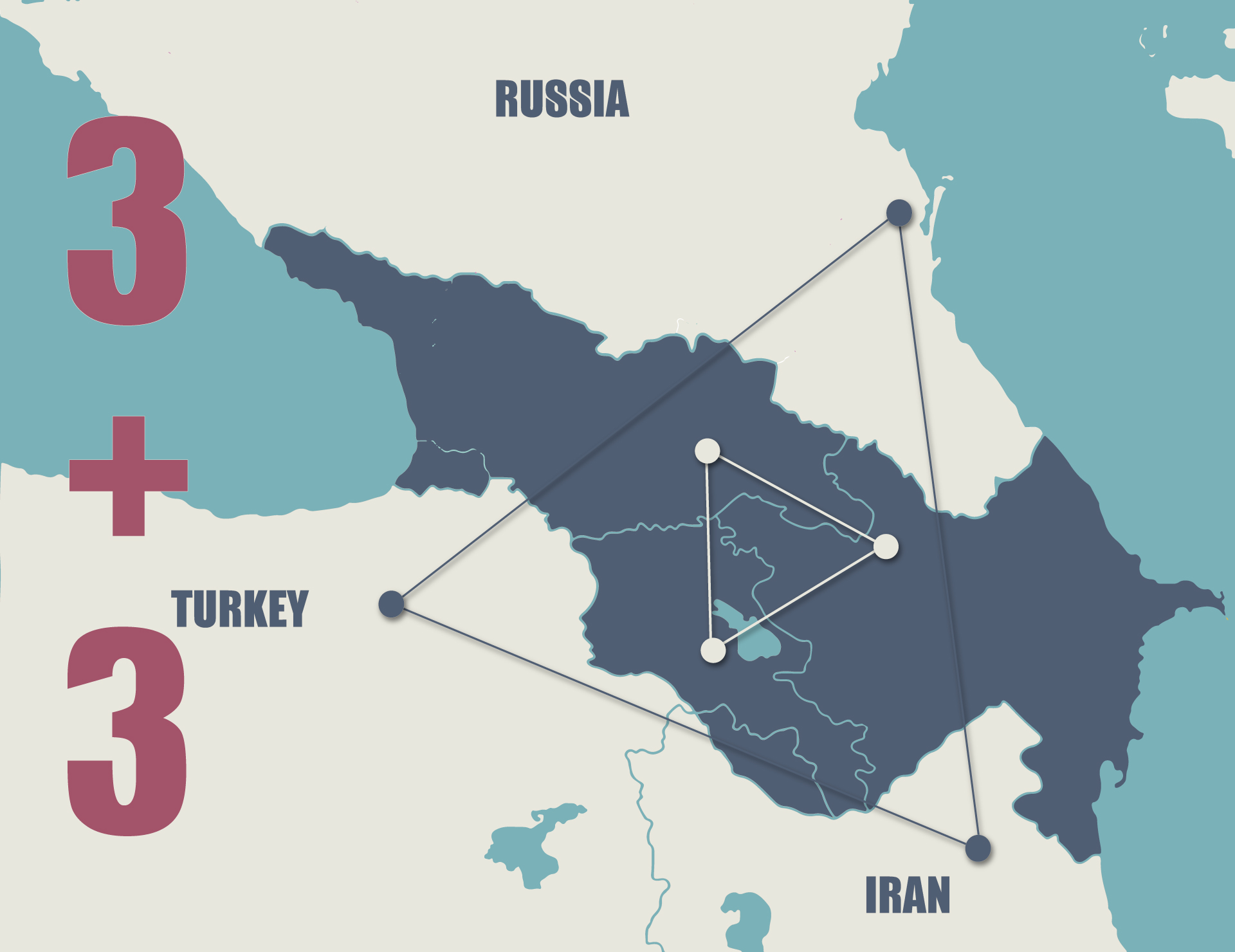Illusion of the OSCE or the South Caucasus in a new geopolitical matrix

I am not inclined to discuss the context of regional security in the dichotomy of the “OSCE versus 3 + 3” formats. This, in my opinion, is oversimplification. And not because the Minsk format on Karabakh has already virtually died, and the "3 + 3" formula is still amorphous and not concrete. The tangle of geopolitical interests of different players around the South Caucasus can turn out to be much more confusing.
The world is plunging into a new format of global confrontation, which a number of experts have dubbed the “new cold war”. Washington is determined to oppose Russian expansion. London recently outlined the struggle with Russia and consolidated its doctrine. But in the category of the "new cold war" - if we are talking about two global poles of confrontation - all these are elements of the struggle along the line of the U.S.-China. Unlike the Soviet Union, for Russia the prospect of becoming a separate pole today do not look realistic. However, this alignment carries a new system of challenges and risks. China, which, as it is commonly believed, is in no hurry, may agree to some kind of "military mediation by the Kremlin" in its own interests in the post-Soviet space. Symptoms of this approach are already showing up on the Ukrainian front and beyond.
The OSCE, by its very nature, is historically and by definition incapable of resolving any conflict. To freeze, leave to smolder or ignite - yes, but in no way - to decide. The missions under the auspices of this organization can be treated according to the principle "this is certainly better than nothing". Yes, the staff of the OSCE missions deserve respect at least due to the fact that they work in dangerous zones, where they can catch bullet and it is overall dangerous. But this does not change the essence. From the Ukrainian experience of working in the part of Donbass occupied by Russia, there are generally negative examples when this organization - both at the level of "ideas" and at the level of individual personalities - in some instants openly played to the occupier’s fiddle.
With regard to the conflict over Nagorno-Karabakh (which entered a new phase after Azerbaijan's victory in the 44-day war and Russian military intervention in Azerbaijan), the return to the real work of the OSCE Minsk Group is impossible without a cardinal replacement of the previous agenda. In fact, there are obvious reasons for this. Once again I will repeat myself - Moscow, in addition to the military base in Azerbaijan, keeps the Minsk format for Karabakh "in reserve" - in case the "bilateral solitaire" with Turkey breaks down (now it looks persistent, but ...). It is difficult for me to say how Washington will really react to the return to the OSCE MG game, but Paris can support Moscow quite sincerely, since it has recently been typical for President Macron to position himself as the avatar of the Kremlin.
The "3 + 3" format advertised from different directions is still reminiscent of the "geopolitics of toasts" traditionally peculiar to the South Caucasus. It is not entirely clear to me how the positions of Russia, Turkey and Iran can be simultaneously strengthened anywhere. These players have deep contradictions in a number of intersecting regions, one of which is the South Caucasus. At the same time, the "peacekeeping" logic of the Kremlin is easy to read - the designated transport and logistics projects in the region should: a) be controlled by Russia, b) serve as a tool for enveloping and pulling Azerbaijan, Armenia and Georgia into the orbit of the Kremlin's national interests. For Moscow, there is no subjectivity of Baku, Yerevan or Tbilisi - but the imperial narrative of "Transcaucasia" is still alive. Ankara or Tehran can “play along” with this situation as much as possible. (Plus, we return to item 1, which is about China).
The representative of the State Department exhaustively described the "red lines" for Georgia in any format of deepening cooperation with the Russian Federation. The situation, in my opinion, looks even simpler. There are two insurmountable obstacles for Tbilisi - Abkhazia and the Tskhinvali region, which are under Russian occupation. Anyone who "suddenly" tries to "overcome" these obstacles in Tbilisi without restoring territorial integrity will receive a commensurate response from the Georgian society and not only from it.
Returning to point 1, in the logic of the global confrontation with China, in addition to opposing the Kremlin, Washington's Iranian policy and the reanimation of Euro-Atlantic unity will be built, in the context of which a line of conduct with Ankara will be developed. Turkey for all its geopolitical ambitions today looks like a "golden chip" in this "new cold" geopolitical matrix.







